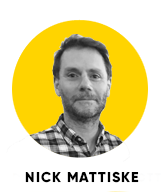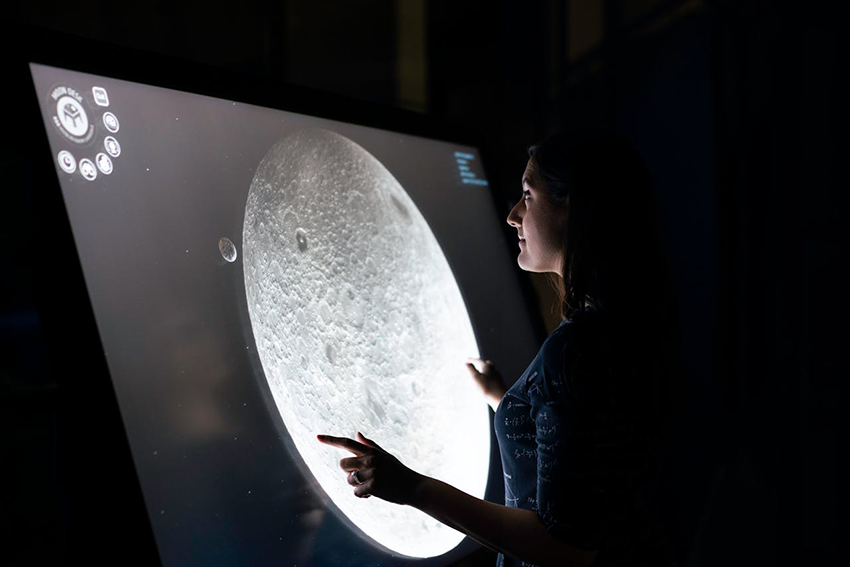Review: The Blind Spot: Why Science Cannot Ignore Human Experience, MIT Press
We have the modern scientific method backwards, argue the two physicists and a philosopher who author this book. Rather than human experience being a product of underlying principles that govern the universe, we first experience the world before making judgements about it, and the language of science is a human construction. It’s a simple argument with deep and sweeping consequences.
Science gives us objective reality reduceable to physical entities and the laws that govern them, a legacy of the Enlightenment. This is profoundly useful. But there has been a subtle shift – what the authors call ‘surreptitious substitution’. They use the analogy of map-making, arguing that modern science, starting with the likes of Newton and his universal laws, mistakes the map for the reality.

This is part of what the authors call (and capitalise) the Blind Spot. This entails splitting nature into the objective and the subjective, with the latter being inferior or even illusion, and explanations that break reality into smaller and smaller parts. They don’t deny the power of science but argue that we have painted ourselves into a corner. To our peril, we deny the biases, emphases and concepts that come from living life and that influence even the study of science.
The Blind Spot is seen in the way we approach time, they argue. Humans experience time elastically. Of course, there is an underlying consistency to time that we measure through clocks. In Newtonian science, time is reduced to mathematical formulae, which allows scientific predictions, but this doesn’t account for real, lived life, which, the authors argue, gives us the initial experience as time being a flow.
One way to think about this is in the example of ‘feels like’ in weather reports. Although the temperature may be a certain degree, the ‘feels like’ measure takes into account other factors to come to a conclusion about what the actual experience is like for the human out in the weather. This basic case points to a fundamental question: which is the more legitimate, fundamental measure of reality – the theory or the practice?
Another way to put this is to say that mathematical abstraction, central to science, is a product of our experience, not a precursor to it. This becomes intriguing in the area of quantum physics, which modifies classical physics. I won’t go into the details of the authors’ argument, but there is a randomness and indeterminacy in quantum physics, as well as a pointing to the priority of relationships, which undercuts the mathematical certainty of classical physics.
The problems of abstraction and reductionism is most obvious in the area of philosophy of mind, which is currently in a tangle. This is largely due to the fact that we are conscious beings studying consciousness, but science aims for objectivity, a somehow getting outside of consciousness to study it. This of course cannot be done. (Psychology, on the other hand, doesn’t do this – it prioritises lived experience over abstract theories that could be applied to all human beings). The authors argue that the mind-body problem (how something non-physical can arise from the physical) is misplaced, because scientists have gone down the route of thinking that only the physical as defined by modern science is reality.
Some of this may sound academic, but the authors note that it has ecological implications. The modern predicament of climate change and environmental degradation is driven by compartmentalisation and a hubris about human ability to control and utilise the world’s resources. The authors suggest that a focus on mathematics as fundamental means that, for one, modern societies have prioritised the economic.

There is also a failure to see the complexity of connectedness of our world. The authors refer to James Lovelock’s Gaia hypothesis, which is often misinterpreted, but argues for the primacy of cooperation over competition. This is something that is not neglected in Indigenous societies, which see the world as made up of relationships rather than things, something that is also present in most religious outlooks. For modern societies, this worldview provides a helpful correction to the narrowness of current scientific thinking.
Nick Mattiske blogs on books at coburgreviewofbooks.wordpress.com and is the illustrator of Thoughts That Feel So Big.













1 thought on “A Simple Argument with Deep and Sweeping Consequences”
We fail to see life, from the phage as a reproducing/evolving collection of molecules in relationship to each other, to humans, and the entire biosphere and technosphere as as an emergent being, with abilities beyond its constituent parts,
This ecology, when we let it work, provides mutual benefit at all levels.
We don’t see it although it is all around us and within us.